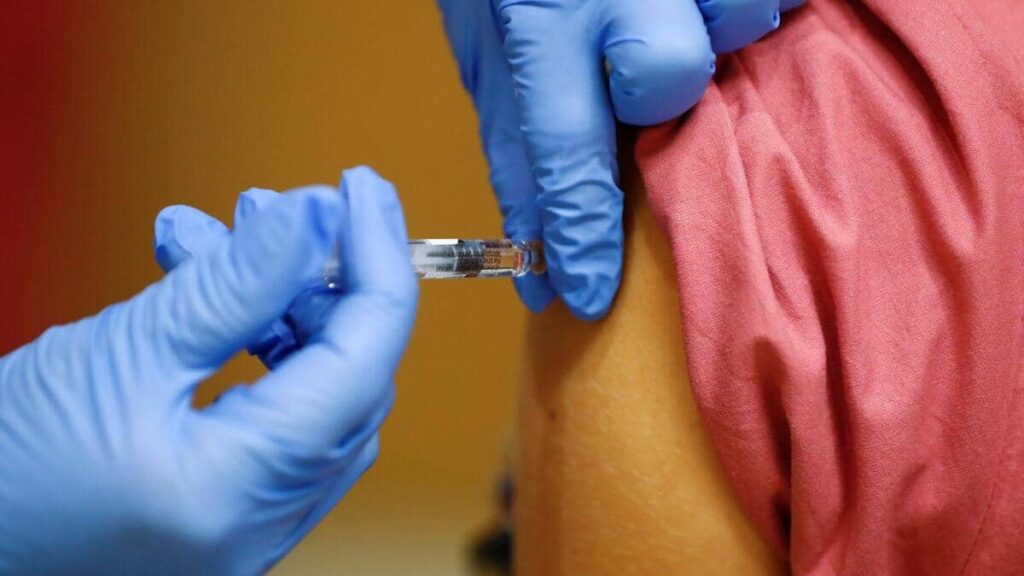It’s “flu season,” so use care if you’ve noticed a feverish itch in your throat or abrupt development of a temperature.
The number of seasonal flu cases in Abu Dhabi has reportedly reverted to pre-pandemic levels, according to the Department of Health (DoH) in Abu Dhabi, and getting a flu shot is one of the best ways to ensure your health. In order to keep healthy throughout the changing seasons, health authorities in the UAE have been promoting the necessity for vaccinations and simple safeguards.
To guarantee continuous immunity, the DoH states that the influenza vaccine is updated annually. It is advised that people aged six months and older receive one dose of vaccinations annually. Individuals are protected for up to two weeks after the date of vaccination. The Department of Health advises giving children who are nine years old or under two doses separated by at least a four-week period.
How can one get a flu shot in the UAE?
Abu Dhabi
Any of the public health facilities in Abu Dhabi offer free flu shots to locals. You do not need to make an appointment to acquire the vaccine; simply visit any of the health centers and provide your Emirates ID and health insurance card.
Dubai
Residents of Dubai can receive flu shots at any of the medical facilities run by the Dubai Health Authority (DHA). You need an MRN number in order to make an appointment (Medical Record Number).
You would already have an MRN number if you had gotten a COVID-19 vaccination from a DHA vaccine center during the previous two years. If you don’t already have one, you can create one by following these instructions:
You can call the DHA hotline at 800 DHA to schedule an appointment for the flu shot, or you can download the “DHA” smartphone app, which is compatible with both Apple and Android devices (342).
The cost of the vaccination is Dh50. For select Dubai residents, such as those over 65, People of Determination, those with chronic illnesses, those with children under the age of 5, and expectant mothers, it is, however, free.
Sharjah, Ajman, Ras Al Khaimah, Fujairah and Umm Al Quwain
Residents of the Northern Emirates, which include Sharjah, Ajman, Ras Al Khaimah, Fujairah, and Umm Al Quwain, can go to an Emirates Health Services (EHS) health facility to get vaccinated against the flu.
The cost of the vaccination is Dh50. For select UAE citizens, it is, however, free, including those over 65, People of Determination, those with chronic illnesses, those with children under the age of 5, and pregnant women.
Also Read: A new mask and COVID-19 rules will be in effect from September 28 in UAE schools and colleges
How flu spreads?
Knowing how seasonal influenza spreads will help you take the appropriate precautions because it is an infectious and acute respiratory infection. These are the several ways that the virus spreads, according to DHA:
Droplets that are released when an infected person coughs, sneezes, or talks are considered the direct mode of transmission.
Touching infected hands or items and then touching your eyes, nose, or mouth is the indirect method of transmission.
Signs and Symptoms
When you have the influenza virus, you may suffer anything from minor to severe symptoms. Flu infection may occasionally result in more severe health issues, such as bacterial pneumonia, ear infections, sinus infections, or the deterioration of long-term medical illnesses including congestive heart failure, asthma, or diabetes, according to the DHA.
“Symptoms usually subside within a week, without any medical intervention. However, it may cause severe illness that requires hospitalization and may lead to serious complications, particularly among certain high-risk groups,” DHA said in an online post on October 22.
Here are some of the symptoms that indicate that you have the flu:
- Sudden onset of fever
- Muscle and joint aches
- Cough
- Malaise
- Headache
- Sore throat and a runny nose.
- Younger children may experience vomiting and diarrhea
High-risk categories
- Pregnant women, at any stage of pregnancy.
- Children between 6 months to 5 years.
- Elderly above 65 years.
- Individuals with chronic medical conditions such as chronic cardiac, pulmonary, renal, neurodevelopmental, liver, or hematologic diseases.
- Healthcare workers
How to prevent seasonal influenza?
The best approach to prevent the sickness, according to UAE health officials, is through vaccination. However, the Ministry of Health and Prevention (MOHAP) of the UAE has issued certain recommendations that you should also heed in order to avoid contracting an infection:
- Get your flu shot
- Wash and sanitize your hands regularly
- Follow good respiratory hygiene practices. For example, use a tissue when you cough or sneeze and immediately dispose of it afterward.
- Self-isolate early if you are feeling feverish or showing other symptoms of influenza, to prevent infecting others.
- Avoid close contact with sick people.
- Avoid touching your eyes, nose, or mouth too frequently.
- Clean and sterilize frequently used surfaces and tools.
